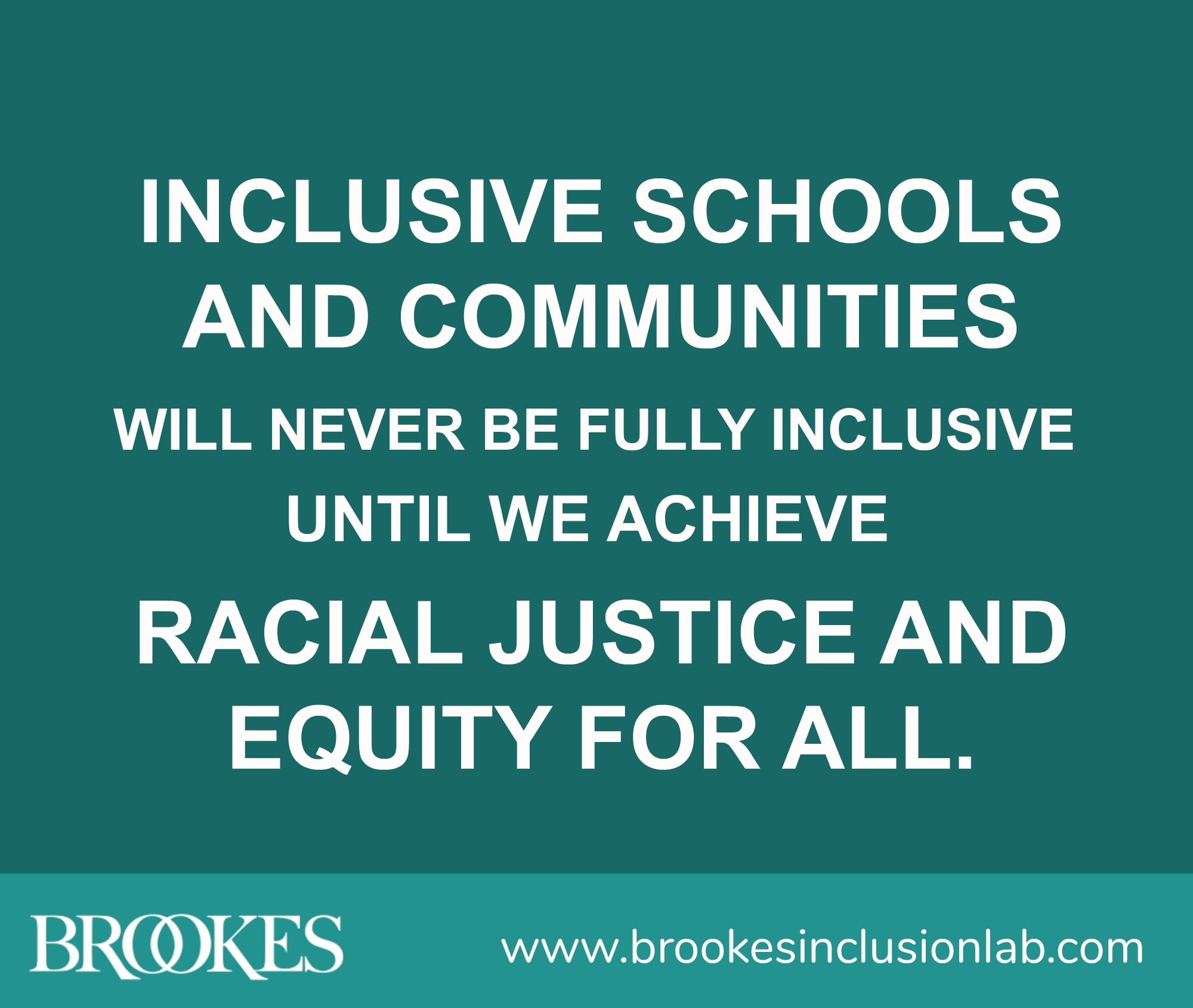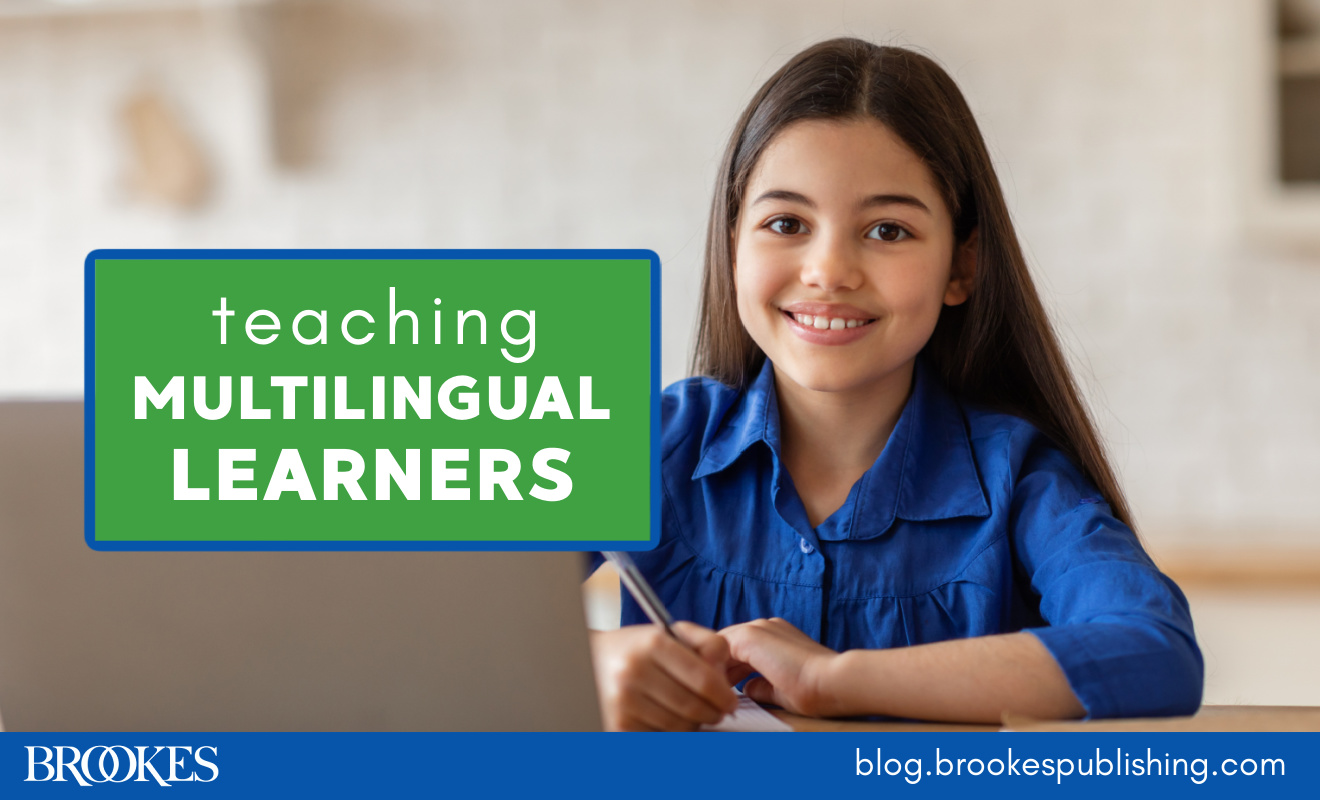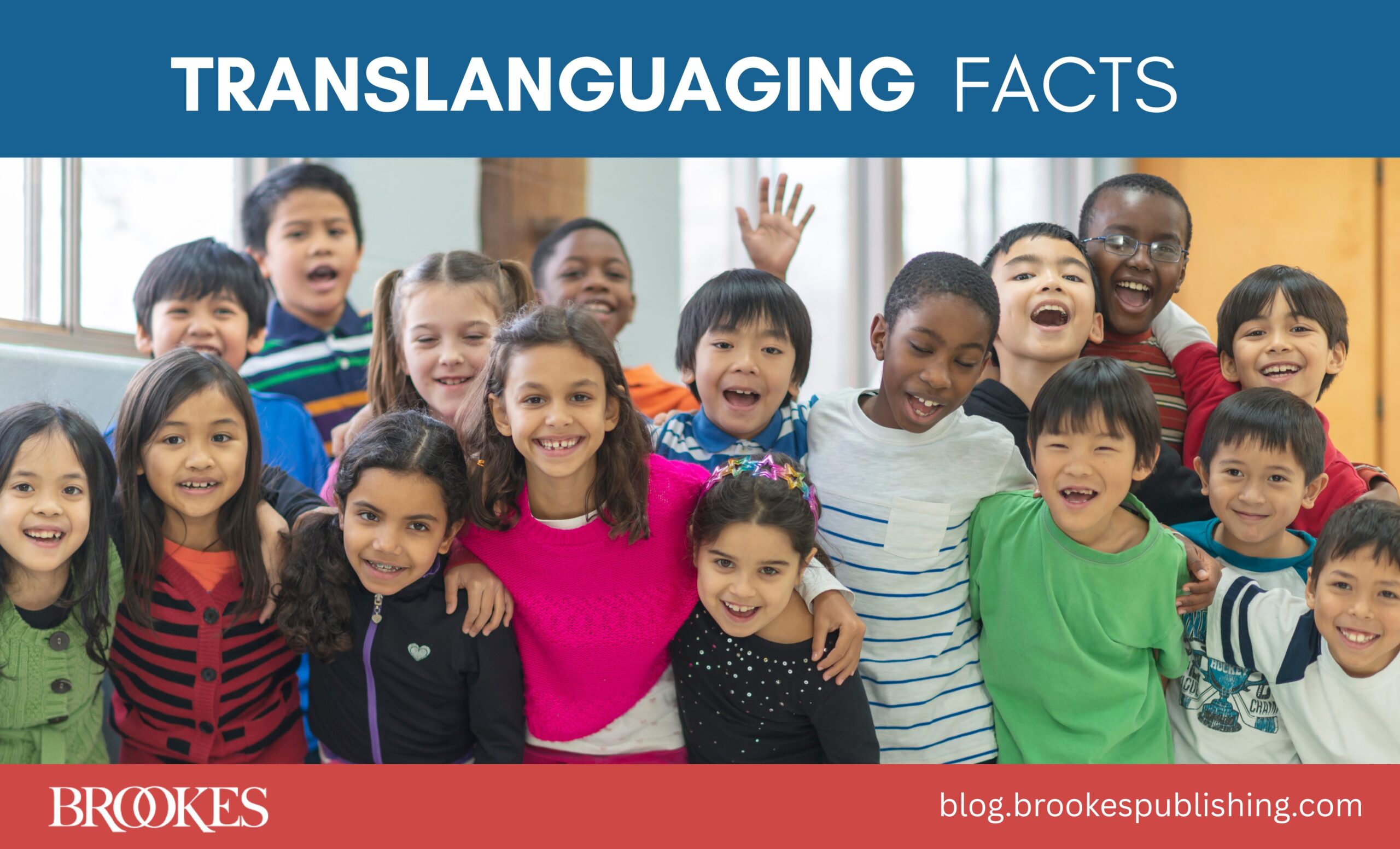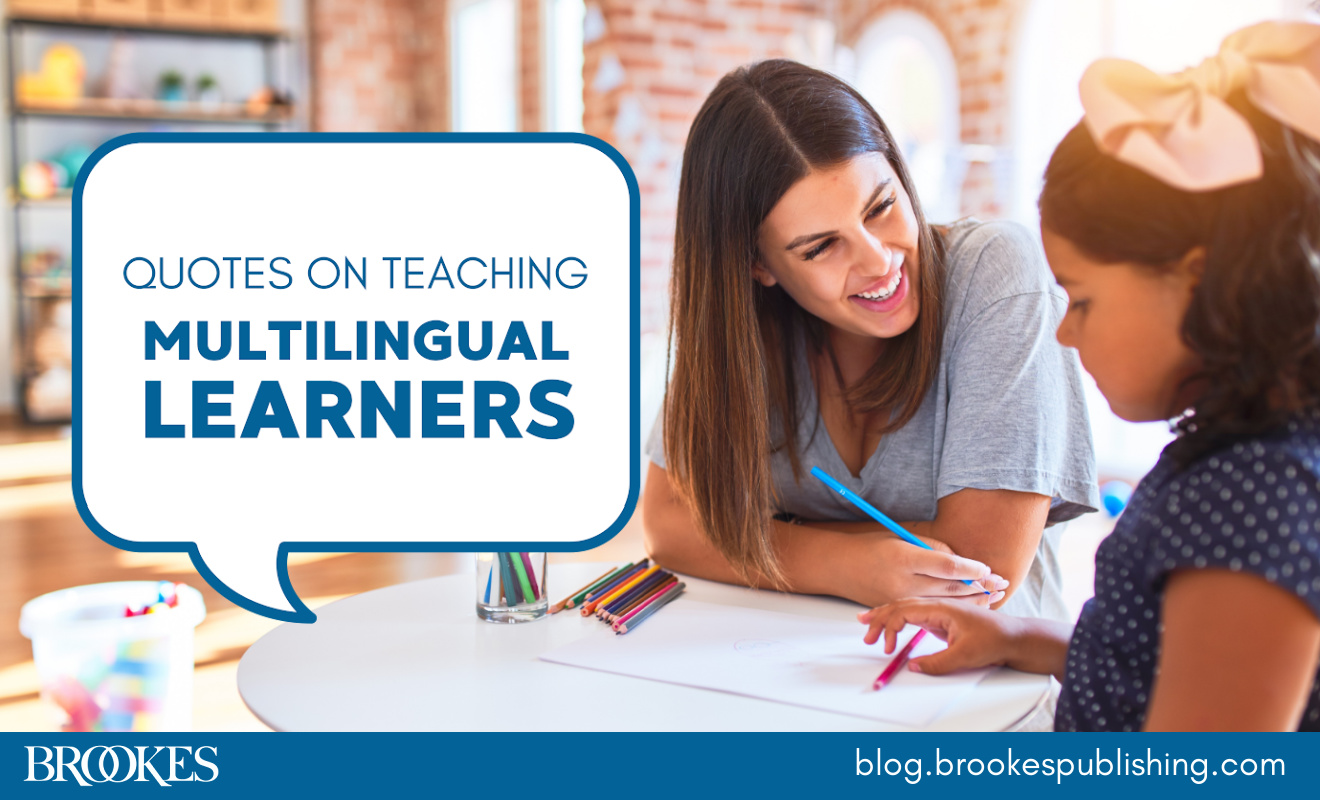Antiracist Education: Books, Articles, and Resources for Teachers
June 9, 2020
Last week, our team made a statement in response to the tragic deaths of George Floyd and other Black Americans, and the protests that took place across our nation in response. Standing in solidarity with the Black community, we affirmed that “inclusive schools and communities will never be fully inclusive until we achieve racial justice and equity for all.” (Read the full Brookes Publishing statement here.)
In today’s post, we’re sharing some helpful resources for educators committed to working toward justice and equity for their students. For Black educators and allies who have already been doing this important work for years, none of this will be new. Other teachers, though, may be looking for resources to help them move forward. Use these books, articles, and websites to build and expand your knowledge, and please share your own favorite resources on antiracist education in the comments below.
Articles on antiracist education
Here’s a list of 15 articles you might want to read and share this summer as part of your professional development. You may have seen some of these already, but some might be new to you. This list is by no means complete, so ask your colleagues what they’re reading and do some digging of your own. (And if there’s an article that should be here but isn’t, please recommend it in the comments and we’ll add it!)
- How to Be an Antiracist Educator, by Dena Simmons for ASCD Education Update
- Educators and Race: A Conversation with Author Ijeoma Oluo on Tackling Systemic Racism in U.S. Education, by Kara Yorio for School Library Journal
- Teaching in Solidarity, by Coshandra Dillard for Teaching Tolerance
- 10 Ways Teachers Can Fight Racism and Teach Tolerance, by Jeanne Croteau for We Are Teachers
- Race Talk: Engaging Young People in Conversations about Race and Racism, by the Anti-Defamation League
- How to Talk to Students About Social Justice, by Principal Baruti Kafele for the Milken Educator Awards
- Teachers Must Hold Themselves Accountable for Dismantling Racial Oppression, by Kelisa Wing for Education Post
- If We Aren’t Addressing Racism, We Aren’t Addressing Trauma, by Dena Simmons for ASCD Inservice
- Don’t Say Nothing: Silence Speaks Volumes. Our Students Are Listening, by Jamilah Pitts for Teaching Tolerance
- How Indigenous, Black and POC Educators Envision a Better School Experience, by Kara Newhouse for KQED Mind/Shift
- How Should I Talk about Race in My Mostly White Classroom?, by the Anti-Defamation League
- Building Student Understanding Across Racial Differences, by Melissa Collins for Edutopia
- The Power of Protocols for Equity, by Zaretta Hammond for ASCD Educational Leadership
- ‘Moments Like Now Are Why We Teach’: Educators Tackle Tough Conversations About Race and Violence—This Time Virtually, by Reema Amin, Caroline Bauman, and Stephanie Wang for Chalkbeat
- How to Root Out Anti-Black Racism From Your School, by Tyrone C. Howard for Education Week
For more resources that will deepen your understanding of topics like bias, racial identity, systems of oppression, and historical foundations of race, explore Talking About Race, the new web portal from The Smithsonian’s National Museum of African American History and Culture. This section of the portal is tailored for educators and includes extensively researched information, reflection points, and conversation starters.
Lists of antiracist books for educators
You’ve probably seen lots of lists making the rounds, and maybe you already own bestsellers like How to Be an Antiracist by Ibram X. Kendi and So You Want to Talk About Race by Ijeoma Oluo. Expand your to-be-read list this summer with some new-to-you books on antiracist education and working toward equity in schools and classrooms. Social Justice Books, a project of the non-profit organization Teaching for Change, has compiled a tremendous list featuring dozens of books for educators on race and education. The list includes both well-known books you’ve probably seen recommended in many other places lately and books that may be new to you.
To find more professional development reads, check out the lists curated by Tamisha Williams for the California Teacher Development Collaborative (15 Books and Anti-Racist Resources to Add to Your Summer Reading List) and Biracial Bookworms (Dear White Teacher: 13 Must Read Books on Racial Literacy) And if you’d like a free ebook with strategies, tools, guiding principles, and an action template, download Racial Justice in Education, an 80-page resource guide from the NEA’s Center for Social Justice and the Human and Civil Rights Department.
Reading leads to more learning when you do it as a group, so consider creating a summer book club with fellow educators to read some of these books and talk about how to apply their insights in your own classrooms. Cult of Pedagogy put together this quick-guide to setting up a successful teacher book club (and they also recommend some books and blog posts to read, many of which focus on culturally responsive teaching).
Diverse books for your classroom library
You’ve probably heard the expression that students need books that are both “windows and mirrors”—books that reflect their own experience and give them insight into lives and experiences different from their own. Be sure your classroom library reflects the diversity of the world around you (and if you’re able to have guest speakers, invite Black authors and other authors of color to speak at your school).
There are lots of great lists of social justice books—for example, the Social Justice Books website is home to more than 60 curated lists of multicultural and social justice books for students and educators, and here’s a list from Embrace Race of 31 children’s books that support conversations on race. But be careful not to limit your selection of diverse books to titles that center oppression and racism—while these books are incredibly important to have in your library, it’s also vital that all students have access to stories about Black joy and books that show young people of color achieving love, happiness, and personal dreams and goals.
The website of the We Need Diverse Books nonprofit is a fantastic place to start—they’ve curated an extensive list of sites that provide diverse book recommendations (covering not only race, but also disability, religion, and sexual orientation). To add some recent diverse middle-grade books to your library, check out this current list of realistic chapter books for middle schoolers, this list of 11 diverse contemporary novels, and this compilation of 25 middle-grade books by Black authors. For teen readers, keep your library up to date with selections from this list of 23 Phenomenal Young Adult Books by Black Authors From the First Half Of 2020, this collection of diverse YA favorites from the Seattle Public Library, and this list of 17 New YA Books Written by Black Authors. You can find reviews of diverse books on School Library Journal, and reviews and lists of upcoming diverse YA books on blogs like Rich in Color.
***
Inclusion advocates like to say that inclusive education is never finished—it’s an evolving journey, and there’s always more to learn. The same is true of antiracist education, which is an integral part of authentic inclusion. Beyond reading lists and book clubs, there are much bigger and broader steps to take toward racial justice and equity for all. We stand with all educators who are committed to listening, learning, and doing the work.




Write a Comment
Your email address will not be published. Required fields are marked *
comments
Jessica says
Thanks for this great list! It is a very important topic to discuss!
I want to share one more source which can be helpful for students - it is a website with dozen of free essay samples on different topics, mainly social issues. For example, here you can find great topics on diversity: https://writingbros.com/essay-examples/diversity/ Lots of topics and thoughts!
Thank you for your great website! Very useful content here!
Post a Comment